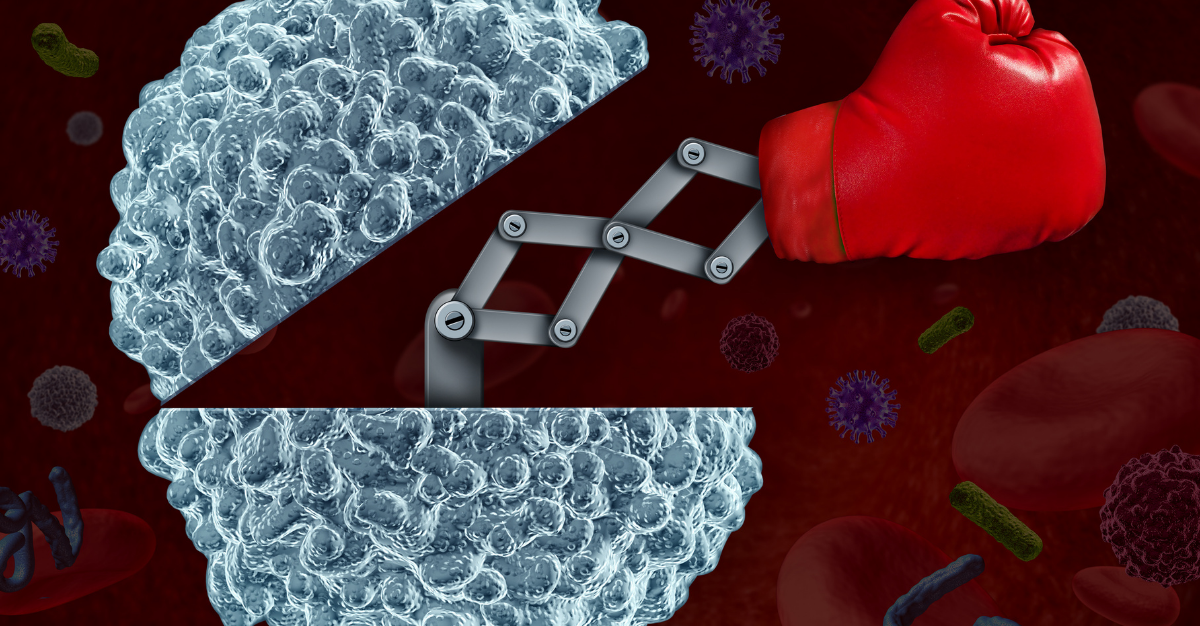
We have weathered some serious concerns about our health and how to protect ourselves from viruses like Covid-19 over the last year and a half. We know the fight is not over and that having a strong and healthy immune system is your first defense in preventing invaders from taking over. As we enter into the cold and flu season (yes these germs still exist) and as we continue to battle new variants of this virus…our best foot forward is knowing what we can do ourselves to support our body’s innate ability to heal.
Why Your Immune System Needs Some Extra Love Right Now
The world has learned a lot about practicing good hygiene since the onset of the COVID-19 pandemic. Hand sanitizer sales jumped an astonishing 600% in 2020, we all wore masks in public, and “social distancing” entered into our regular vocabulary. This all contributed to our collective efforts to control COVID-19, but, somewhat ironically, scientists are now raising concerns about the long-term effects on our immune systems.
One concern is that the emphasis on sanitizing everything weakens immunity. According to the “hygiene hypothesis,” exposure to microbes like bacteria, parasites, viruses, and fungi helps to build our immune response. By limiting our exposure to the microbial world while trying to avoid COVID-19, have we disturbed this process? Research still needs to be done, as it’s obviously too early to know the long-term effects.
However, the isolation of the last year may have affected our immune systems in a more subtle fashion. Emotions have a profound impact on immunity. In particular, loneliness can lower our resilience.
One study found that it triggers cellular changes that reduce immunity as much as other, more physical risk factors for illness, like obesity. Similarly, stress reduces immunity. You’ve likely noticed you’re more likely to get sick during tough times, and research confirms that stress – particularly chronic stress – can alter your immune response. For many people, isolation and what sometimes feels like an endless stream of bad news have resulted in more intense feelings of loneliness and stress, and the resulting impact on immunity should be front of mind as we enter into the season where exposure to cold and flu viruses become more impactful.
Cases of the flu decreased dramatically during lockdowns, in part because hygiene practices were followed more conscientiously due to COVID fears. Continuing to do things like frequent hand washing will help you stay healthy. So will proactive efforts at supporting your immune system.
Another reason for building up immunity is the hard truth that COVID-19 is likely here to stay. New evidence shows that even if you’re double-vaccinated, you could still be at risk (although the data has shown vaccination drastically reduces the odds of serious illness, now we are learning about how long those antibodies last and that immunity may be waning for the vaccinated). Being in top shape with your health is what we can personally control and feeling empowered with what you need to know is the first step.
Support Your Immune System: Proven Strategies
Being resilient is what we need to aim for. We know we can’t control everything but ensuring you do what you can to keep your body strong will help support your immune system for the months ahead (and for the long term).
Focus on fiber
A diet rich in high-fiber foods encourages the development and maintenance of the gut microbiome, which stimulates your immune cells. A diet centered around fruits, vegetables, whole grains, and legumes is one of the best ways to develop stronger immunity.
Choose probiotics
Probiotic supplements and fermented foods also contribute to your gut bacteria. Good choices include sauerkraut, kimchi, yogurt, and kefir.
Limit sugar
Reducing sugar intake can lower the risk of obesity and Type 2 diabetes, both of which are risk factors for a weaker immune system. In one study, obese patients were twice as likely to get the flu following a flu shot, and eliminating sweets can go far in any weight loss strategy.
Favor healthy fats
Certain fats can reduce inflammation, which is stressful for your immune system. Research shows that extra virgin olive oil and foods with high amounts of Omega-3 fatty acids, such as salmon and flax seeds, are beneficial.
Find time for moderate exercise
Even a single session of moderate exercise improves immune response. Of course, everyone has a different definition of “moderate,” so pay careful attention to your body. You should feel refreshed and energized afterward, not exhausted.
Stay rested
It’s always been a commonly held belief that getting enough sleep helps prevent illness, but new research suggests the relationship is even stronger than previously assumed. According to one study, a difference of less than one hour in the amount of sleep a person gets can significantly affect their susceptibility to colds. In particular, sleep helps strengthen T cells, a type of immune cell. It also slows the production of stress hormones like cortisol and adrenaline that compromise immunity. If you find yourself hitting the snooze alarm every morning or you frequently feel exhausted, it’s time to take a look at your sleep hygiene and perhaps make scheduling more time to sleep a priority.
Add supplements if needed
Daily supplementation with certain immune-supportive supplements can be beneficial. Some supplements that have been proven to help immune response include vitamin D, vitamin C, zinc, and echinacea. Be sure to speak with your healthcare provider before including any new supplements. Feel free to get in touch with us and we can help find the right ones for you!
Avoid toxins
Don’t undermine your efforts to support your immune system by exposing your body to harmful toxins like cigarette smoke, excessive amounts of alcohol, or harmful pesticides. Be mindful of hidden toxins in household cleaning products, detergents and cosmetics too! Read labels and choose all-natural products when possible – check out the Environmental Working Group website for more information on what could be hiding in typical household products, cosmetics, and more! https://www.ewg.org
Remember – You’re in Control
We’ve all experienced a lot of stressful changes over the last year and a half. By taking proactive steps to support your immune system, you can ensure you’re ready for whatever the next few months hold and celebrate the world’s gradual re-opening.
If you’d like some help creating a health plan that fits your goals and lifestyle, give us a call – We are here to help!
Sources
Finlay BB, Amato KR, Azad M, Blaser MJ, Bosch TCG, Chu H, Dominguez-Bello MG, Ehrlich SD, Elinav E, Geva-Zatorsky N, Gros P, Guillemin K, Keck F, Korem T, McFall-Ngai MJ, Melby MK, Nichter M, Pettersson S, Poinar H, Rees T, Tropini C, Zhao L, Giles-Vernick T. The hygiene hypothesis, the COVID pandemic, and consequences for the human microbiome. Proc Natl Acad Sci U S A. 2021 Feb 9;118(6):e2010217118. doi: 10.1073/pnas.2010217118. Erratum in: Proc Natl Acad Sci U S A. 2021 Mar 16;118(11): PMID: 33472859; PMCID: PMC8017729.
The Wall Street Journal, Hand Sanitizer Sales Jumped 600% in 2020. Purell Maker Bets Against a Post-Pandemic Collapse, January 22, 2021,
The hygiene hypothesis, the COVID pandemic, and consequences for the human microbiome
B. Brett Finlay, Katherine R. Amato, Meghan Azad, Martin J. Blaser, Thomas C. G. Bosch, Hiutung Chu, Maria Gloria Dominguez-Bello, Stanislav Dusko Ehrlich, Eran Elinav, Naama Geva-Zatorsky, Philippe Gros, Karen Guillemin, Frédéric Keck, Tal Korem, Margaret J. McFall-Ngai, Melissa K. Melby, Mark Nichter, Sven Pettersson, Hendrik Poinar, Tobias Rees, Carolina Tropini, Liping Zhao, Tamara Giles-Vernick
Proceedings of the National Academy of Sciences Feb 2021, 118 (6) e2010217118; DOI: 10.1073/pnas.2010217118
Myeloid differentiation in social isolation, Steven W. Cole, John P. Capitanio, Katie Chun, Jesusa M. G. Arevalo, Jeffrey Ma, John T. Cacioppo, Proceedings of the National Academy of Sciences Dec 2015, 112 (49) 15142-15147; DOI: 10.1073/pnas.1514249112
CBC News, Flu cases in Canada ‘exceptionally low’ so far, public health says, November 17, 2020,
Public Health Ontario, Risk of COVID-19 Transmission from Vaccinated Cases
Global News, Half of Canadians are anxious about reopening amid COVID-19. Here’s how to cope, June 19, 2021,https://globalnews.ca/news/7962380/covid-reopening-social-anxiety/
Schley PD, Field CJ. The immune-enhancing effects of dietary fibres and prebiotics. Br J Nutr. 2002 May;87 Suppl 2:S221-30. doi: 10.1079/BJNBJN/2002541. PMID: 12088522
Gambino CM, Accardi G, Aiello A, Candore G, Dara-Guccione G, Mirisola M, Procopio A, Taormina G, Caruso C. Effect of Extra Virgin Olive Oil and Table Olives on the ImmuneInflammatory Responses: Potential Clinical Applications. Endocr Metab Immune Disord Drug Targets. 2018;18(1):14-22. doi: 10.2174/1871530317666171114113822. PMID: 29141570.
Simpson RJ, Kunz H, Agha N, Graff R. Exercise and the Regulation of Immune Functions. Prog Mol Biol Transl Sci. 2015;135:355-80. doi: 10.1016/bs.pmbts.2015.08.001. Epub 2015 Sep 5. PMID: 26477922.
Prietl B, Treiber G, Pieber TR, Amrein K. Vitamin D and immune function. Nutrients. 2013;5(7):2502-2521. Published 2013 Jul 5. doi:10.3390/nu5072502
Saper RB, Rash R. Zinc: an essential micronutrient. Am Fam Physician. 2009;79(9):768-772
Carr AC, Maggini S. Vitamin C and Immune Function. Nutrients. 2017;9(11):1211. Published 2017 Nov 3. doi:10.3390/nu9111211
Hudson J, Vimalanathan S. Echinacea—A Source of Potent Antivirals for Respiratory Virus Infections. Pharmaceuticals (Basel). 2011;4(7):1019-1031. Published 2011 Jul 13. doi:10.3390/ph4071019
Cohen S, Doyle WJ, Alper CM, Janicki-Deverts D, Turner RB. Sleep Habits and Susceptibility to the Common Cold. Arch Intern Med. 2009;169(1):62–67. doi:10.1001/archinternmed.2008.505




